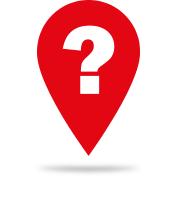 Overwhelm is a huge and common problem for solopreneurs. Many people falsely think you can build a solopreneur business because there’s just too much to do. Hiring outsourced help may be a good option for you at some point, but even before that it’s important to think and work strategically. It’s one of the best ways to decrease feelings of overwhelm in your business.
Overwhelm is a huge and common problem for solopreneurs. Many people falsely think you can build a solopreneur business because there’s just too much to do. Hiring outsourced help may be a good option for you at some point, but even before that it’s important to think and work strategically. It’s one of the best ways to decrease feelings of overwhelm in your business.
First, let me establish why overwhelm is so common for solopreneurs. A person who operates as a solopreneur wears a lot of hats. It’s hard to juggle them all. There’s a constant switching between roles such as sales, marketing, customer service, product creation, administration, and just plain doing what you get paid to do. Prioritizing a big to-do list is almost always a challenge, but when you are prioritizing tasks not only within your various roles but between them as well it can get very complicated. This alone accounts for a lot of solopreneur overwhelm. As a business owner, you need to wrestle with such questions as “Is working on my new product more important than marketing my existing product?” or “Is updating an informational page on my site more important than filming a sales video?”
A second reason is that you get a lot of messages about things you “must” be doing. The list of musts can get really long! If you were to listen to every expert in every business discipline you wouldn’t have a business so much as a never-ending to-do list.
Strategy can help with both sources of overwhelm. If you have a solid business strategy, you can prioritize (and let go of) tasks more easily. You’ll know which new things you really must be doing. You’ll feel more comfortable with what you decide to leave undone.
One way to get started easily with strategy is to start with your end goal and work backward to figure out how to make it happen. For example, if you want to sell your ebook, you need two things: people visiting the sales page and for some of those visitors to buy. That means you need strategies to get people to view the page. This might include free events (teleseminars, webinars, etc), speaking, keyword optimization, advertising and social media. For each of these activities, you have a specific goal – encourage people to visit the sales page for your ebook. For conversions, you want to aim to improve the percentage of people who buy. One strategy might be to start with the best sales page you can build, and then test and improve it. Change just one thing at a time, test the results and make changes accordingly.
You can apply the same thinking to other goals too. Whatever it is you want to sell, work backwards to figure out what needs to happen and how you can make it happen.
What overwhelms you in your business? How have you made improved the situation? Tell me about it in the comments.



